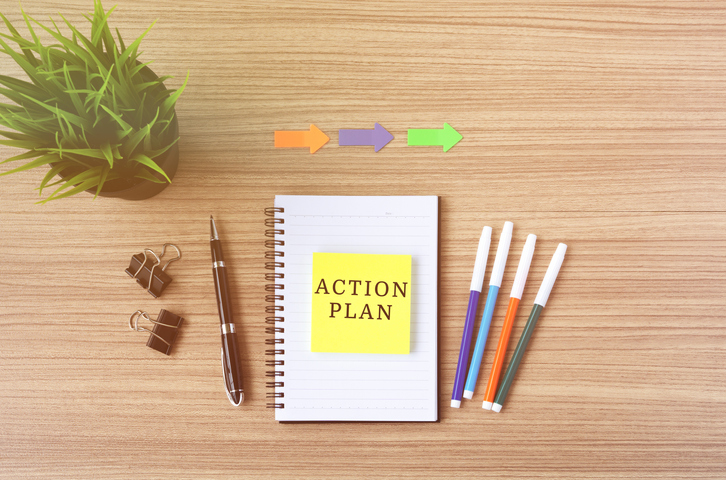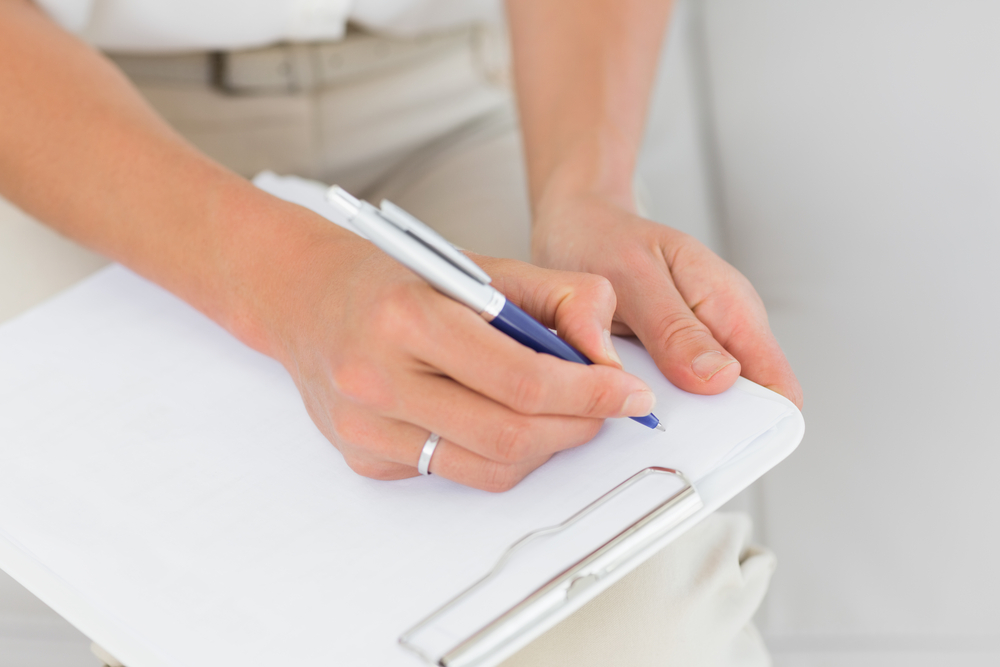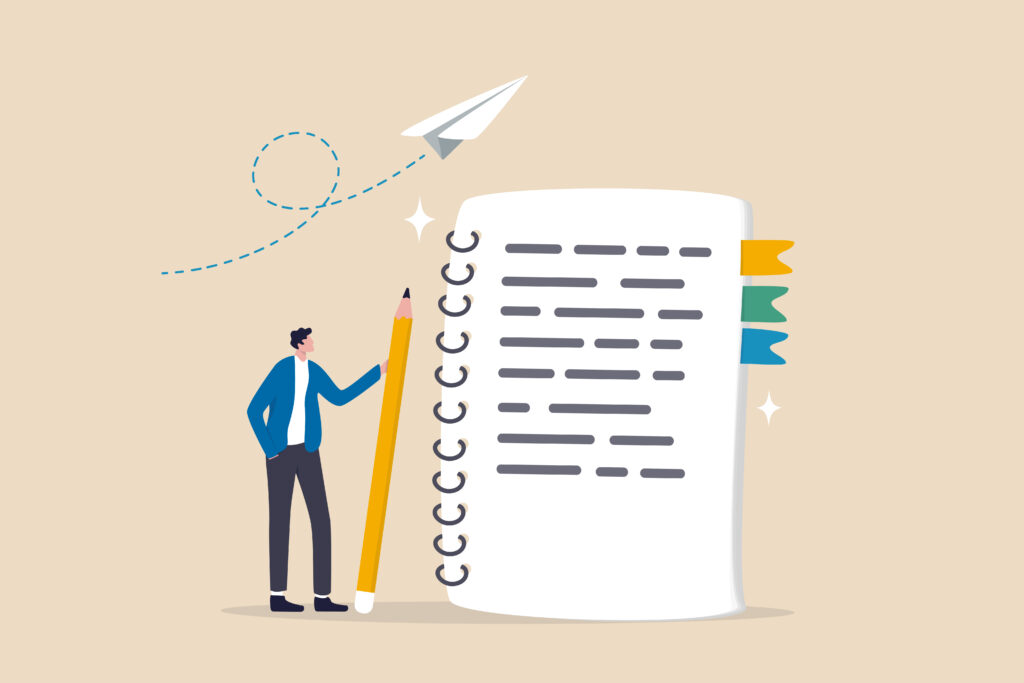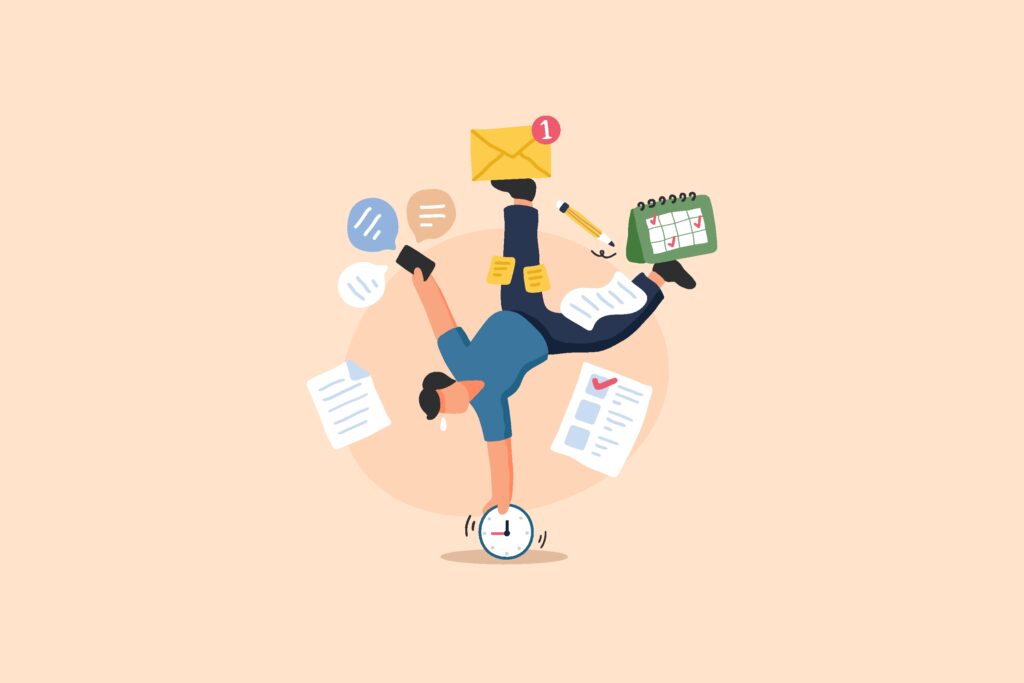Not all notes are created equal. Some are scratched in the margins, some are cryptic abbreviations that will need deciphering later, and some land on a post it note only to get lost to the wind. The fact of the matter: lawyers have to take plenty of notes, from client interviews and CLE sessions to deposition and docket calls. Your brain is constantly juggling details and if your notetaking isn't effective, you may lose them altogether.
That's why notetaking is a vital skill for lawyers. Whether you're a pen-and-paper purist or a tech-forward typist, the way you capture and retain information has a direct impact on your advocacy. So here are 10 notetaking tips on us to help sharpen your thinking, boost your retention, and make every meeting (or PBI CLE session!) more productive!

Be an active listener. This first tip takes place before your pen can even hit the paper. Active listening is the underrated skill of being present and truly understanding what others have to say. Being a great listener will help you construct more effective notes in the long run. Be sure to listen for important facts and action items. Building this skill will help you filter out what's just noise and what's critical for follow-up.
Interested in learning more? Check out this past blog post on how to be a successful active listener.
Choose your method. There are actually quite a few different systems for notetaking. The best one? The one that works for you! Some favorites among legal professionals include the classic outline (great for logical thinkers), mind mapping (for those big-picture strategy sessions), and The Cornell Method (dividing your page into key points, notes, and summaries). If you prefer digital tools, consider a searchable and savable app such as OneNote, Notion, or Evernote.
Abbreviate and summarize strategically. Rephrasing information in your own words aids understanding and memory. Shortening words can also help you get your thoughts down more quickly. However, try to avoid inventing abbreviations on the fly that you might not understand later. If you don't expand on it now, you might forget what the great idea you scribbled in the margins was. Take time to add a little context while it's still fresh.
Whatever you decide to do, make sure your summaries are consistent and detailed enough that you'll understand what it means later down the road.

Bullet points are your friend. Don't shy away from peppering your paper with bullet points! Bullet points can help you highlight key information, break up dense paragraphs, organize your notes, and make scanning through them easier. Feel free to get a little creative with them. Use stars for priority items or empty checkboxes for tasks that need doing.
Don't record everything. Don't transcribe meetings word-for-word. That isn't your job, and it's not just exhausting—it’s inefficient. Instead, listen for meaning. Focus on ideas, decisions, and key data, particularly in client or team meetings. Paraphrase complex points in your own words to break it down. Note legal terms or references that will need to be looked up later. You can even capture tone or emotional context that might be important for later, such as "client seemed nervous." Whatever you view as helpful!
Keep notes organized. If you're the type of person who scatters notes across multiple notebooks, apps, or documents, then you already know you'll spend more time searching than reading. Keep all notes organized by client or case, then date and location. Add clear headers or tags so that you can navigate easily. If you're using digital notes, CRTL+F is your new best friend.

Create a one-page summary. It's an extra step, but one you might find useful. At the end of any major hearing, deposition, or CLE, challenge yourself to create a one-page summary of the meeting's key takeaways. This forces you to go through your notes and distill the clutter into the most important points. It will double as a go-to reference when memory fades. Win-win!
Back it up! Don't risk losing the notes you worked so diligently on. Your paper notes could get left at the courthouse or have coffee spilled on them. Your digital notes could be the victim of a corrupted file. Nothing is every completely safe, which means you should always take the time to back up your notes! Scan physical notes with CamScanner or save a copy of your files to the cloud. That way, you've got a fallback if anything should happen to that first set of notes.
Review and revisit. Don't let your notes gather dust. Take a few minutes each week to review recent entries and revisit open tasks. Regular review and revision will keep your memory fresh.
Practice, practice, practice. How else do you power up a new skill? Continuing to try new things, experimenting with what works, and taking time to practice is how you build yourself up. After all, effective notetaking is a skill like any other! It's a valuable tool for thinking clearly, communicating effectively, and staying on top of the many demands of legal practice.
So whether you're prepping for court, absorbing a CLE, or simply trying to survive that Monday morning meeting, remember: write that down! Future you will be grateful!



